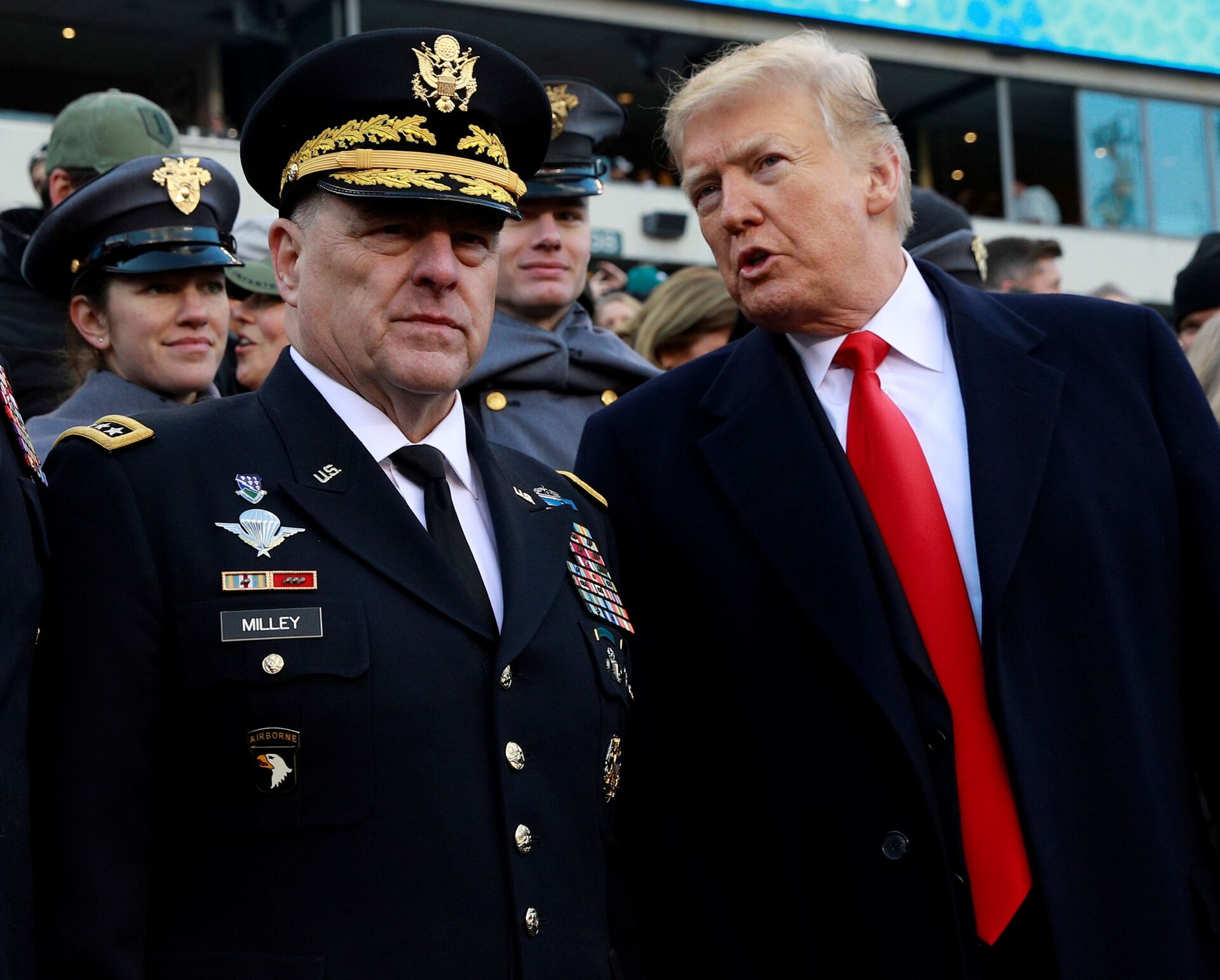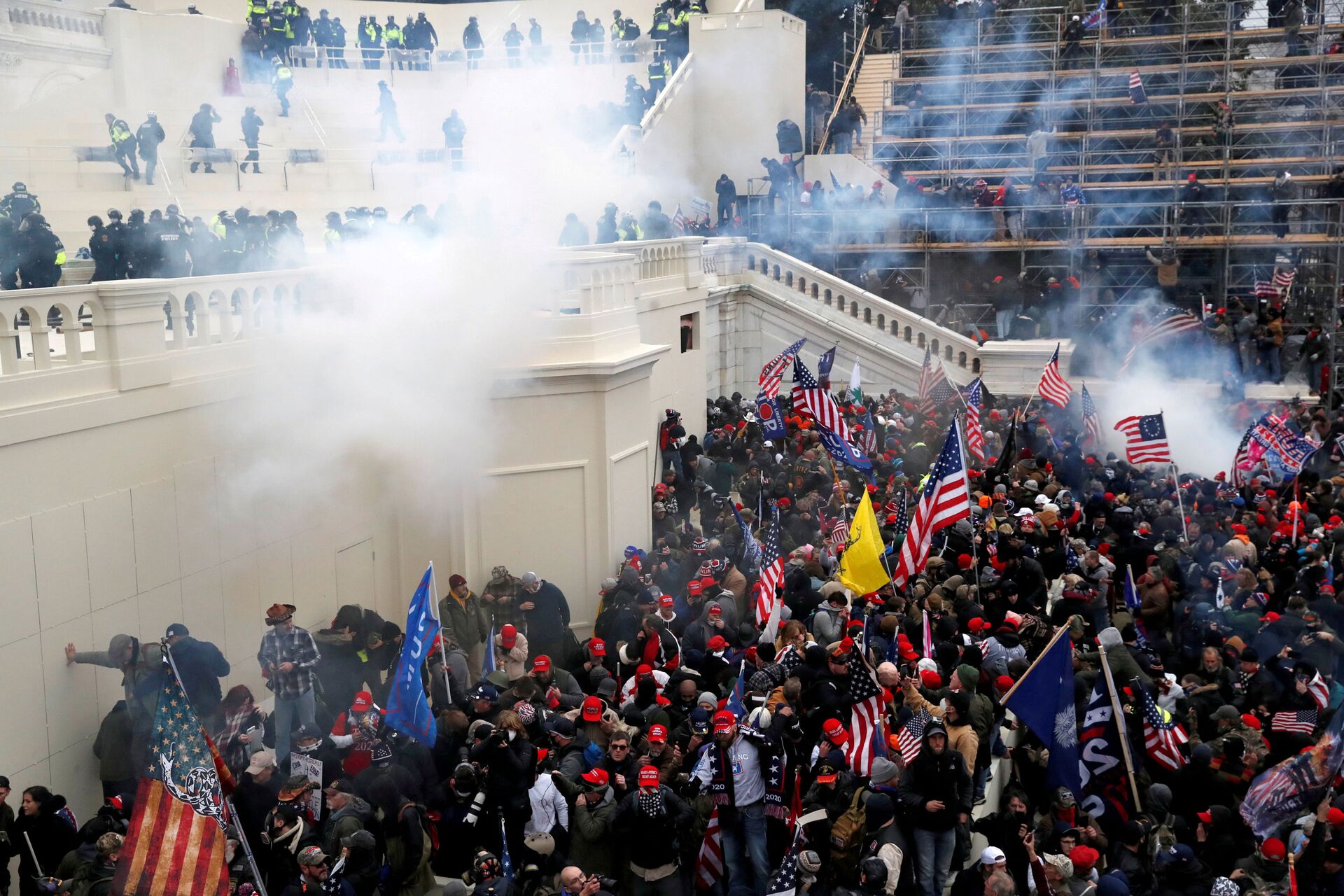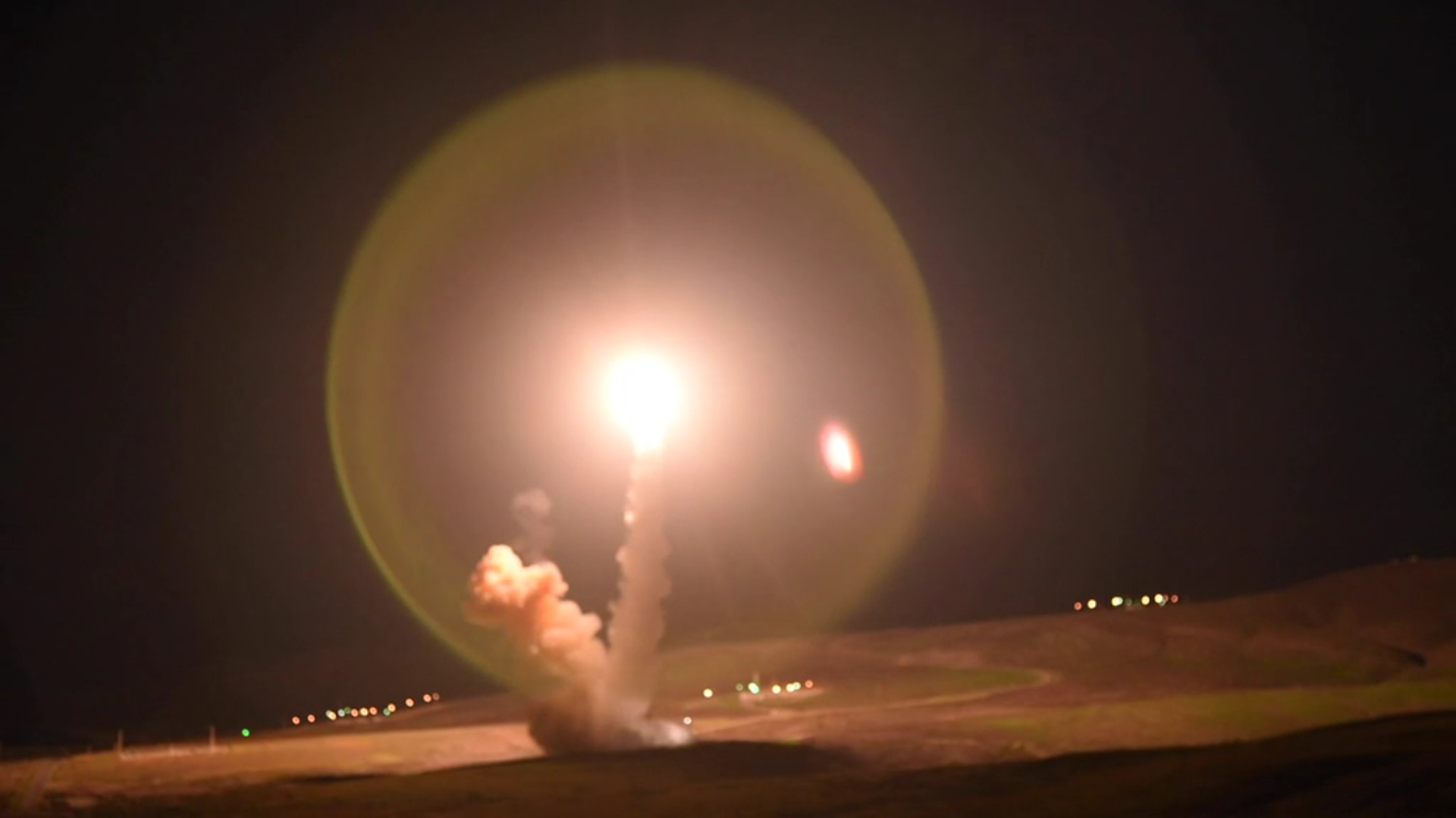US Gen. Milley Reassured China Twice in Trump’s Last Days POTUS Wouldn’t Attack, Woodward Book Says
20:48 GMT 14.09.2021 (Updated: 17:15 GMT 31.07.2023)
Subscribe
A new book by Washington Post journalists Bob Woodward and Robert Costa reveals some of the behind-the-scenes actions taken by senior members of the US defense and intelligence agencies and political establishment during the final weeks of Donald Trump’s presidency, as he refused to accept defeat to now-US President Joe Biden.
According to the New York Times, which obtained an advance copy of the book prior to its September 21 release date, US Army Gen. Mark A. Milley, chairman of the Joint Chiefs of Staff and seniormost officer of the US Armed Forces, was one of the central figures coordinating the mitigation effort to ensure Trump didn’t do anything illegal before leaving office on January 20, 2021.
‘He’s Been Crazy for a Long Time’
At the top of the list of fears was that Trump might try to hold onto power by provoking some kind of incident that would give him emergency powers, similar to the Reichstag fire incident in 1933 that saw dictatorial powers given to Germany’s then-chancellor, Nazi leader Adolf Hitler. Milley told Woodward that fear included a potential attack on China, which he said he had already warned Trump off of doing previously.
On January 8, two days after the insurrection by Trump supporters at the US Capitol that failed to block certification of the November 2020 election results, Milley phoned his counterpart in China, Gen. Li Zuocheng, chief of the Joint Staff Department of the Central Military Commission, to reassure him there was no danger to the People’s Republic of China.

U.S. President Donald Trump and Gen. Mark Milley, Chief of Staff of the United States Army, speak at the 119th Army-Navy football game at Lincoln Financial Field in Philadelphia, Pennsylvania, U.S. December 8, 2018
© REUTERS / JIM YOUNG
“Things may look unsteady,” Milley said, according to Woodward and Costa, “but that’s the nature of democracy, General Li. We are 100% steady. Everything’s fine. But democracy can be sloppy sometimes.”
The phone call reportedly lasted 90 minutes. According to Milley, Li “remained unusually rattled” even after. He was particularly concerned about the stability of the US government and if the military was willing to act against another attempted seizure of power. US troops had already been deployed to the US Capitol after the failed attack, a number that would swell to more than 26,000 troops - ten times the number of US troops in Afghanistan at the time.
Later that day, Milley received a phone call from House Speaker Nancy Pelosi (D-CA), who similarly fretted that Trump might stage an even more drastic action than that on January 6.
“This is bad, but who knows what he might do?” Pelosi told him. “He’s crazy. You know he’s crazy. He’s been crazy for a long time. So don’t say you don’t know what his state of mind is.”
“Madam Speaker,” Milley said, “I agree with you on everything,” adding he was “going to prevent anything like that in the United States military.”
‘Aggressively Watch Everything’
After their conversation, Milley said he summoned his top military commanders to the Pentagon and ran an impromptu review of the step-by-step process for launching a nuclear weapon. While Trump was the only one who could order a nuclear strike, Milley wanted his top generals to be reminded in person that he also had to be involved.
“If you get calls,” General Milley said, “no matter who they’re from, there’s a process here, there’s a procedure. No matter what you’re told, you do the procedure. You do the process. And I’m part of that procedure. You’ve got to make sure that the right people are on the net.”
The general added: “The strict procedures are explicitly designed to avoid inadvertent mistakes or accidents or nefarious, unintentional, illegal, immoral, unethical launching of the world’s most dangerous weapons.”
According to Woodward and Costa, Milley then went around the room to each officer and directly asked them if they understood the process.
Milley said he then turned the most powerful parts of the US national security state into a tool for catching another potential Trump coup attempt. He told the head of each military branch to watch everything “all the time” and reached out to both National Security Agency director Paul Nakasone and CIA Director Gina Haspel, urging them to “aggressively watch everything, 360.”
Haspel similarly feared Trump might stage an attack against Iran.
"We are on the way to a right-wing coup. The whole thing is insanity. He is acting out like a six-year-old with a tantrum,” Haspel told Milley after Trump rejected the November election outcome. "This is a highly dangerous situation. We are going to lash out for his ego?"
Reminding Troops Of Their Oaths
Four days after Milley’s meetings, on January 12, all eight members of the Joint Chiefs of Staff issued an unprecedented memo to all active and reserve US troops reminding them that the January 6 insurrection had been a violation of US law.
"The violent riot in Washington, DC, on January 6, 2021, was a direct assault on the US Congress, the Capitol building, and our Constitutional process," the memo said. "We witnessed actions inside the Capitol building that were inconsistent with the rule of law. The rights of freedom of speech and assembly do not give anyone the right to resort to violence, sedition and insurrection."

Police release tear gas into a crowd of pro-Trump protesters during clashes at a rally to contest the certification of the 2020 U.S. presidential election results by the U.S. Congress, at the U.S. Capitol Building in Washington, U.S, January 6, 2021.
© REUTERS / SHANNON STAPLETON
The memo was also likely provoked by sympathy among law enforcement and active duty and reserve military members for the insurrectionists, and came as units across the country investigated reports that their members might have gone to Washington to be part of the attack.
In addition, several top Pentagon officials had resisted attempts by US Capitol Police to deploy National Guardsmen around the national legislature prior to the riot, which began as a rally hosted by Trump outside the White House. The USCP chief at the time, Steven Sund, later told lawmakers his ability to respond to the escalating situation had been hamstrung by the Pentagon, which took hours to respond to his emergency requests after Trump supporters began mobbing the building’s western terrace.
Five people died in the attack, including retired Air Force veteran Ashli Babbit, who was shot by a USCP officer outside the US House of Representatives chamber as she and others attempted to bash down the door. The officer, whose name has not been released, has been cleared of criminal and professional wrongdoing.
Trump was subsequently impeached in early February for incitement to insurrection, but the Senate acquitted him, with some senators feeling it was improper for him to be impeached after leaving office.



